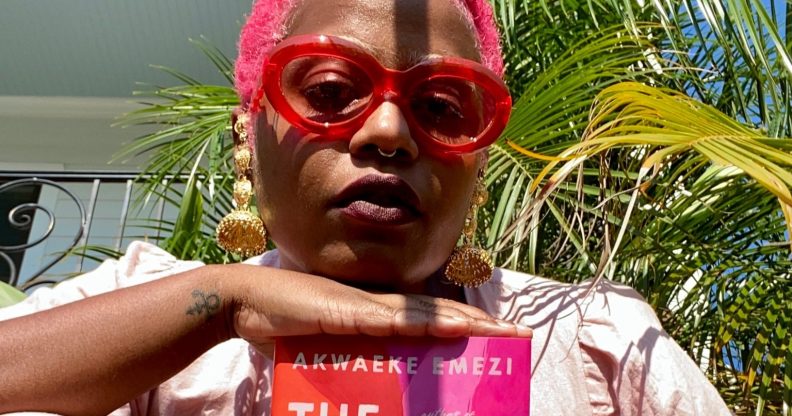Women’s Prize for Fiction confirms all trans women are eligible, but non-binary authors must be ‘legally female’ to enter

Akwaeke Emezi with their new book, The Death of Vivek Oji. Twitter/AkwaekeEmezi)
The Women’s Prize for Fiction has confirmed that female authors who are transgender are eligible for nomination, after backtracking on including non-binary people.
The clarification comes after the Women’s Prize nominated a non-binary author for the first time last year – raising questions over its policy towards authors whose gender falls outside the binary of man or woman.
Akwaeke Emezi was longlisted for the 2019 prize with their novel Freshwater.
“It is a historic moment,” professor Kate Williams, then chair of the judges, said at the time. “They are an incredibly talented author and we’re keen to celebrate them.”
But on Monday (October 5), Emezi announced they would not be submitting future works after they were told information on their “sex as defined by law” would be required to enter their new book, The Death of Vivek Oji.
“My novels will not be submitted for the Women’s Prize. Their origin story is that men were excluding them [with] the Booker, so when Freshwater was longlisted, I hoped it was a sign that they gave thought to who *they* were excluding,” Emezi said.
“That visibility brought a ton of violent s**t my way, they got quite some publicity from it, and decided to change…nothing. I hadn’t even thought about a replay until my publisher reached out to ask how I wanted to proceed with Vivek.”
Forget about me—I don’t want this prize—but anyone who uses this kind of language does not fuck with trans women either, so when they say it’s for women, they mean cis women.
And yes, this does mean that them longlisting FW was transphobic.
— AKWAEKE (@yungdeadthing) October 5, 2020
Emezi added: “It’s fine for me not to be eligible because I’m not a woman! But you not about to be out here on some ‘sex as defined by law’ like that’s not a weapon used against trans women.”
In response to this, the Women’s Prize – which was established in 1996 to recognise female writers, after none of the six shortlisted books for the 1991 Booker Prize was written by a woman – put out a statement confirming that all female authors, cis or trans, are eligible to enter.
“As a prize which celebrates the voices of women and the experience of being a woman in all its varied forms, we are proud to include as eligible for submission full-length novels written in English written by all women,” said Joanna Prior, its chair of trustees.
“In our terms and conditions, the word ‘woman’ equates to a cis woman, a transgender woman or anyone who is legally defined as a woman or of the female sex.”
A statement regarding eligibility for the Women's Prize for Fiction. pic.twitter.com/WRGBtQmSCf— Women's Prize (@WomensPrize) October 5, 2020
This eligibility policy would appear to create a distinction between non-binary authors who were assigned female at birth (AFAB) and those assigned male at birth (AMAB).
Following the policy, AFAB non-binary people who have not changed their legal gender are eligible to enter the Women’s Prize, while non-binary authors assigned male at birth who have not changed their legal gender are not.
In the UK, only around 5,000 transgender people have changed their legal gender since the Gender Recognition Act was introduced in 2004 to enable this. Non-binary people are not currently legally recognised, though some will change their legal gender to male or female in place of a third gender option.
Whether any non-binary author will enter the Women’s Prize given this new distinction is a question yet to be answered.
The 2020 Women’s Prize was won by Maggie O’Farrell with Hamnet.

